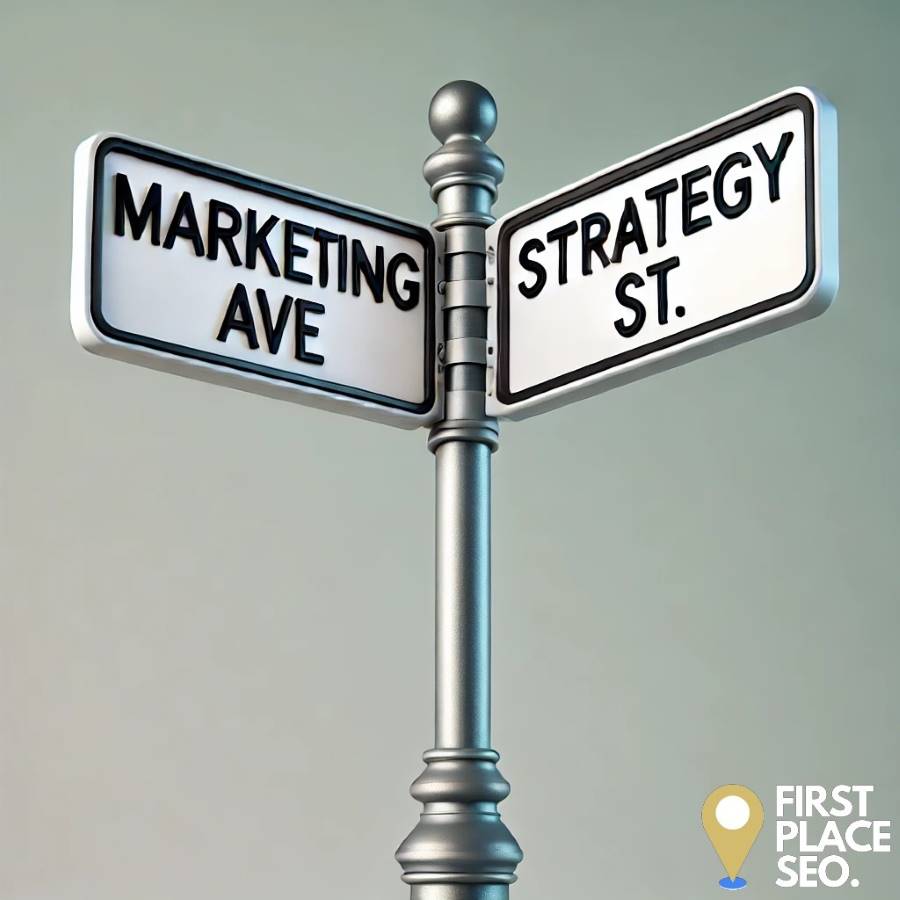How are keywords important in marketing?
When people hear about keywords they often think about how they can improve their website’s ranking on search engines like Google with them. However limiting keywords for this sole purpose will result in missed opportunities. Keywords are not only relevant online; they’re essential across all forms of communication with your audience.
Consider keywords as the lingo that connects your business with it’s potential customers. These words and phrases guide people to your products or services, whether they are searching online, reading an email, or browsing Facebook. If you understand and use keywords consistently you can create a strong and clear message that will resonate with your audience, no matter where they stumble across your brand online.
Why keywords are still so very important for SEO?
Without keywords you cannot rank, it is as simple as that. They help to communicate what your business offers in a way that speaks directly to what your customers are looking for.
Imagine someone searching for a new book to read. They might be drawn in by descriptions like “mystery,” “romance,” or “biography.” These keywords guide people’s choices, helping them find what they’re looking for. The same applies to your business. When someone is searching for a service you offer, they will type in a specific keyword to find it. There are many variables as to exactly what they will type in so you also need to use variations of your keywords. If your marketing materials whether online or offline don’t include these keywords, you might miss the chance to connect with the reader and get the conversion..
What is keyword expansion?
Keyword expansion is to add new keywords to the keyword list so that you rank for more keywords and generate more traffic. Keywords influence your audience’s decisions. When potential customers look for a solution, they rely on keywords to navigate. If these keywords are missing from your marketing efforts, it can lead to missed opportunities.
For instance, if your website is offering a weight loss programme, you might want to focus on keywords like “weight loss,” “healthy eating,” and “fitness plans.” However, if your Facebook or Instagram emphasises “fitness classes” and your emails focus on “nutrition tips,” this inconsistency in the use of keywords can confuse your audience. To use keywords effectively, your marketing message needs to be consistent, using the same core keywords across all channels.
How do I find the best keywords for my business?
Finding the right keywords is about aligning your business with the language your customers use. Here’s how I would do it:
- Describe Your Services: Start by listing the key products or services you offer. These form the basis of your keyword strategy.
- Understand Your Audience: Consider how your potential customers describe their needs. What problems are they trying to solve? These are the keywords they’re searching for.
- Match Keywords to Customer Needs: Ensure the keywords you use in your marketing reflect the language your customers use. This alignment helps make your message more relatable and effective.
Why Does Keyword Consistency Matter?
Consistency is integral to a keyword strategy that has a chance of working. It’s not enough to identify the right keywords; they must be used consistently across all marketing channels. Here’s why it matters:
- Uniform Messaging: Your core message should be the same across all platforms, whether it’s your website, social media, or email campaigns. This consistency helps build a strong, trustworthy brand.
- Keyword Consistency: Using the same keywords across different channels ensures your message is clear and recognisable. It’s not about repeating the same phrases but ensuring your core keywords are present in all your marketing materials.
- Tone and Style: Your brand’s tone and style should also be consistent. If your website is formal but your social media is casual, it can create confusion. This inconsistency can weaken your overall marketing impact.
How to Incorporate Keywords In Your Marketing Efforts
Once you have identified the right keywords and established the right consistency, the next step is to weave these keywords throughout your entire marketing strategy effectively.
- Website Content: Your website is where many potential customers will first encounter your business. Make sure your website content is optimised with the keywords your audience is searching for, not just the ones that describe your business.
- Blog Posts: Blogging is a great way to target specific keywords and address common questions your audience may have. Use your blog to delve into different keywords and phrases, driving traffic to your site and establishing your expertise.
- Social Media: Social media platforms provide a more personal way to connect with your audience. Use keywords in a conversational tone, making your brand more relatable.
- Email Marketing: Your email campaigns should reflect your core keywords. Whether sending a newsletter or a promotional email, ensure the language you use aligns with your overall keyword strategy.
- Offline Advertising: Don’t forget about your printed materials. Whether it’s a brochure or an ad, using the right keywords can make a significant difference in how well your message is received.
A Real World Example: The Impact of Consistent Keyword Use
Consider a local gym that specialises in weight loss programmes. Their website might be optimised with keywords like “weight loss,” “personal training,” and “nutrition plans.” However, if their social media focuses on “fitness classes” and their emails highlight “healthy living tips,” this inconsistency can dilute their message.
By aligning their keywords across all platforms—using “weight loss,” “personal training,” and “nutrition plans” in all their marketing materials—the gym can create a more cohesive and effective message. This consistent use of keywords helps attract more clients and strengthens the gym’s brand.
Bringing It All Together: Using Keywords to Connect with Your Audience
Keywords are more than just a tool for improving your search rankings. They are essential in all areas of marketing, helping you communicate more effectively with your audience. By understanding how to use keywords beyond SEO and ensuring consistency in your messaging, you can create a strong, clear connection with your customers.
Success in marketing doesn’t just come from using the right keywords; it comes from using them consistently across all your efforts. Whether it’s on your website, social media, email marketing, or printed advertising, keywords should be the thread that ties everything together. If you need help refining your keyword strategy or ensuring consistency across all your marketing channels, don’t hesitate to get in touch. A well-executed keyword strategy is key to achieving the results you’re looking for.


